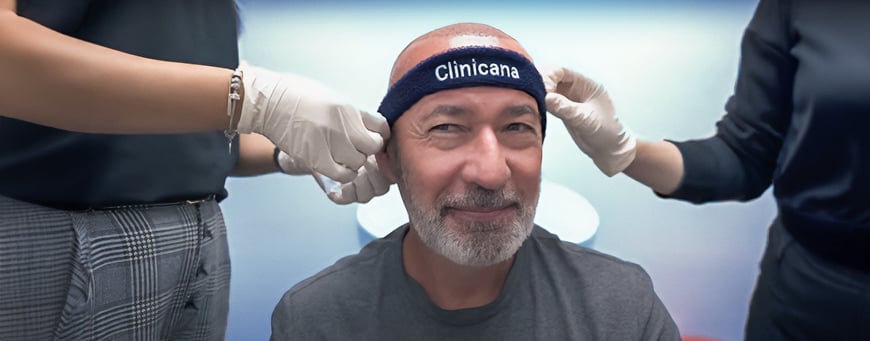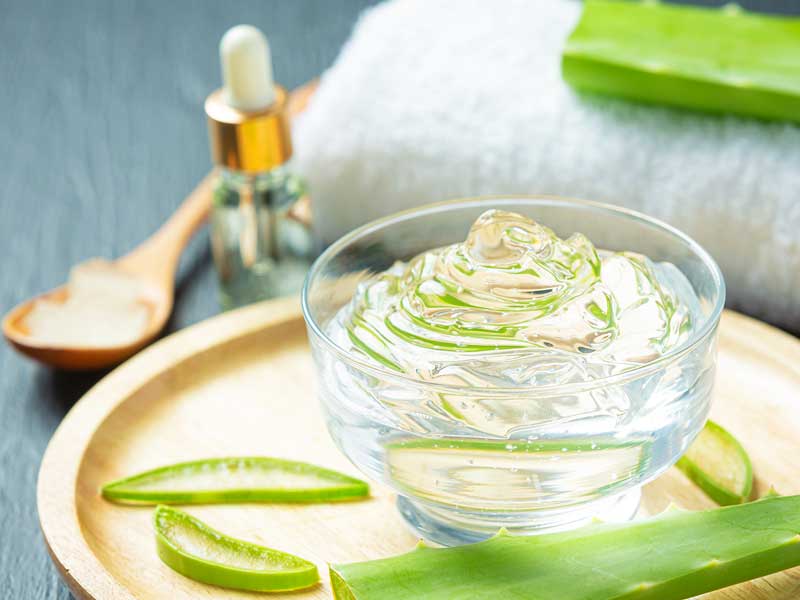Aloe vera for hair growth: does it really work?
The use of aloe vera for hair is becoming more and more frequent due to the multiple benefits that this plant brings to scalp and skin, including its antiseptic and moisturising properties, as well as because it provides many nutrients and vitamins to hair. The question then is the following: can you use aloe vera for hair growth? Does it prevent alopecia?
This question is especially important for those who are looking for information about the FUE technique and the cost of hair transplant to recover their hair. At Clinicana, we always look after our patients’ health: therefore, we always say that before resorting to hair implants, the best medicine is prevention, and aloe vera can be of help to get this. But, why is alove vera good for hair? Can I recover my lost hair by using this plant? What does aloe vera do for your hair? What treatments can I use, and how to prepare them? Let’s see them!
Aloe vera: benefits for hair
One of the main characteristics of aloe vera is that it is a plant with a very high-water content; but besides that, it contains antioxidants, minerals (calcium, magnesium, zinc, iron, potassium) and multiple vitamins (A, C, E, B1, B2, B3 and B6).
Aloe is also known for its analgesic properties, which is why it is used as a remedy for muscle aches or to relieve wounds. But also, thanks to the fact that it is an excellent moisturiser and its high content of basic nutrients, the use of aloe vera plant for hair is well-known for its multiple benefits, including the following:
it has multiple benefits for the hair, including the following:
Prevents an excess of sebum:
An excess of sebum is not only a nuisance because of oily scalp; it also clogs follicles, preventing hair from growing normally. However, aloe vera naturally prevents sebum build-up.
Helps to fight dandruff:
Aloe vera helps to maintain hair health and skin PH, hydrating scalp and preventing it from drying out, so that dandruff may appear.
Provides strength to hair:
This is one of the main alovera uses for hair. Thanks to the many nutrients that it contains, aloe vera not only hydrates and protects scalp, but it also gives strength to hair, which in this way becomes less brittle and gains volume and shine.
Hydrates hair:
As we have already said, this plant is an excellent natural moisturiser for skin and hair, so it helps to prevent them from drying out.
Stimulates hair growth:
Although it cannot directly prevent hair loss, aloe vera is useful for hair growth because it contains natural agents that stimulate hair production in healthy follicles, as laboratory studies have shown. That is, although it cannot stop alopecia, you can use aloe vera for hair loss prevention.
Prevents fungi:
Aloe vera has also antifungal properties, making it ideal to combat the appearance of ringworm on scalp.
How to use aloe vera for hair
Given its many benefits, aloe vera has many cosmetic applications; however, although you can find products that take advantage of the properties of this plant, you can also prepare your own aloe vera hair treatment at home: and since it’s a 100% natural product, you can be sure that it will have no side effects. Let’s see how to prepare aloe vera treatments using it as a cream or gel, as a shampoo, or as a mask.
Aloe vera gel for hair:
Is aloe vera gel good for hair? Yes, it’s one of the best natural products to moisturise your scalp and strengthen your hair. You can use pure aloe vera gel for hair to hydrate it, achieving an effect similar to that of keratin; the use of aloe vera gel for hair growth in healthy follicles, also brings positive results. Another possibility is using this plant as a scalp cream, applying it once a week and gently massaging the area to hydrate and strengthen hair.
It is advisable to apply the cream after rinsing hair, and let it act for about 15 minutes (preferably putting a shower cap on top to favour absorption) before rinsing hair again, using warm water. To prepare a homemade cream with aloe vera, simply cut some plant leaves and extract its gelatinous interior; then, mix it with a bit of water until it has the right consistency… and it will be ready to use. As for how to use aloe vera gel for hair, you can use it in the same way as cream.
Shampoo with aloe vera:
Aloe vera shampoo can be easily purchased at any store; however, it is possible to prepare a shampoo with aloe vera at home simply by adding to our daily shampoo the gel obtained by emptying the leaves of the plant (half a leaf will be enough): thus, we get hair to get more shine and softness. It is enough to leave the shampoo with aloe vera acting on hair for about 20 minutes: that is, it is not necessary to leave the aloe vera on hair all night long.
Aloe vera hair mask:
Finally, to repair damaged hair you can use aloe vera and coconut oil for hair mixed in a mask; to prepare it, mix 3 tablespoons of aloe vera gelatine with another 2 of coconut oil, until you get a consistent mixture: use it in the same way as with the aloe vera cream. Aloe vera provides vitamins and minerals to hair, while coconut oil provides antioxidants and fatty acids, thus revitalising your hair.
Does aloe vera grow hair?
Because of the multiple benefits of aloe vera gel for hair, many people want to know if hair growth using aloe vera is possible. The truth is that this plant can be a really good natural supplement to maintain a nourished and hydrated scalp, strengthen your hair, and stimulate hair growth… in healthy follicles. However, we should not create false expectations: that’s why we want to make clear that aloe vera cannot stop alopecia; and sorry, but no: it won’t make hair to grow back in bald areas.
Despite the multiple benefits of aloe vera for hair, if you face any hair loss problem it’s vital to go to a specialist as soon as possible; and if you want to recover your hair lost due to alopecia, the only reliable and long-lasting solution is a hair transplant. Clinicana is the best hair transplant clinic in Turkey, and we are specialised in all hair treatments: request a free consultation, and ask us for a free, no obligation estimate for your treatment. There’s still time to save your hair!!

A hair transplant procedure can be a transformative experience. But to ensure your newly implanted follicles thrive, proper aftercare is very essential. This article equips you with key hair transplant recovery tips or post-operative instructions to minimize discomfort, optimize healing, and pave the way for a successful hair transplant journey for you. Hair transplant recovery […]

Dreaming of a full head of hair? Hair transplants are gaining traction, particularly in Turkey as clinics there are characterized by budget-friendly options and skilled surgeons. But, with so many clinics, the way of choosing the right one can be overwhelming. This article will help you find one of those top 10 hair transplant clinics […]

Finding the best hair transplant clinic in Istanbul is a crucial decision. In this article, we will look at some important factors to help you make an informed decision to ensure a successful surgery. How to choose the best hair transplant clinic in Istanbul? Istanbul has emerged as a sought – after destination for hair […]








